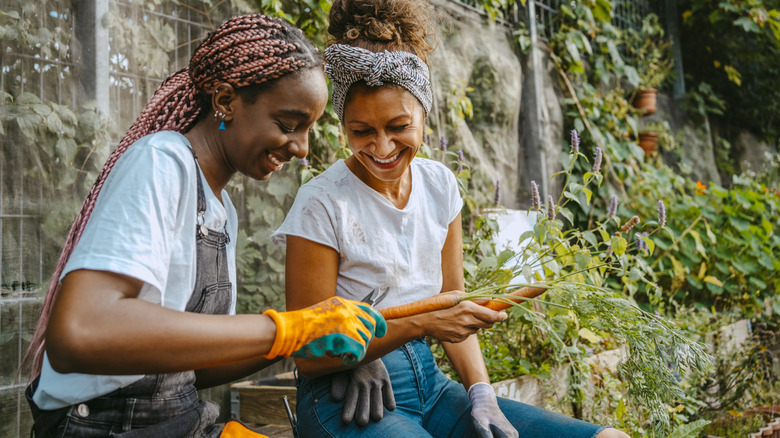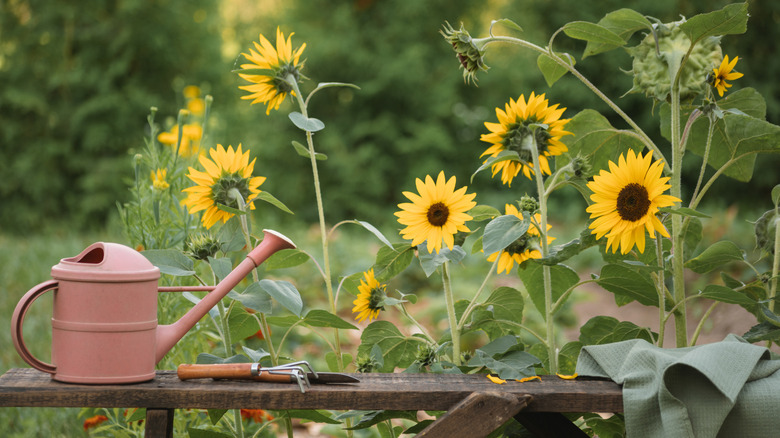Plants That You Should Avoid Growing Next To Anything Else
As a gardener, you're probably quite familiar with companion planting, and the many benefits of pairing different plants in the garden. But did you know that there are also some species which are loners, and don't particularly like to play nice with others? Some plants just need their own space, and anything planted near them will likely suffer from their unsociable behavior. A few examples of these are black walnut trees, potatoes, and even those gorgeous sunflowers that will brighten your yard over summer.
There are common reasons why certain species prefer to go solo. Some plants are allelopathic, which means they release a toxin into the soil that will harm others growing close by. The black walnut is a prime example of this. It releases a chemical called juglone which has the tendency to inhibit the growth of many species grown near it. That's precisely why the common myth that nothing grows under a walnut tree is partly correct. While some plants can tolerate this toxin, many others, like tomatoes, peppers, and eggplants, are especially sensitive, and will not grow anywhere near a black walnut. The reason this tree displays such antisocial tendencies is because it's trying to keep all the nutrients and moisture in the soil to itself, and wipe out the competition. Further species that display allelopathic properties include goldenrod, tree of heaven, garlic mustard, and purple loosestrife.
These plants prefer to grow alone
While there's something quite magical about seeing glorious sunflowers turning their happy faces up to the sun amidst all the pretty flowers in your yard, these summer favorites also have allelopathic properties. Like other members of the Asteraceae family, they produce a compound known as sesquiterpene lactones, which has been researched for use as a natural herbicide. This is why dahlias and sunflowers are not a good match in the garden. Plus, sunflowers' tall growth and imposing structure means they can shade out other sun loving plants nearby. That's why you should avoid growing sunflowers (including Mexican sunflowers) close to your vegetable beds, where they're likely to stunt the growth of your crops.
Another plant you want to consider growing entirely on its own is the humble potato. Potatoes are heavy feeders, and they'll want to keep all the nutrients available in the soil to themselves. They're also susceptible to many of the same diseases as other plants in the nightshade family, such as tomatoes and eggplants. For this reason, members of the nightshade family should never be grown together — if a disease like blight takes hold, it can quickly decimate your entire garden. This is why it's a good idea to grow your potatoes in bags, where they can have access to their own quality potting soil, and don't have to share any of the valuable nutrients with others. In addition to these plants which grow best completely alone, there are also numerous plant pairs that shouldn't grow next to each other in your garden.

